(2743 products available)








































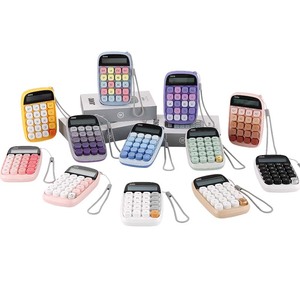
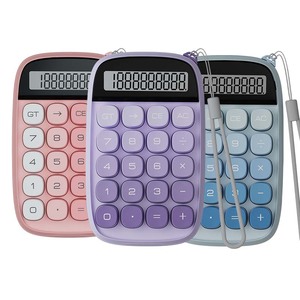
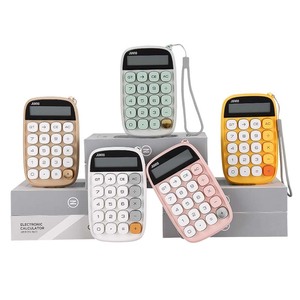

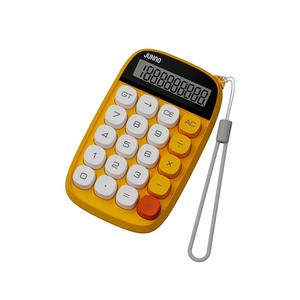




































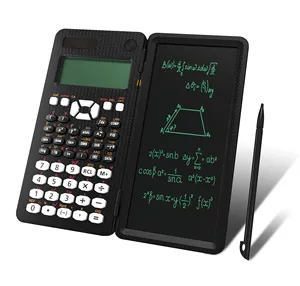





























































































































Basic LCD Screen Calculators
School calculator wide LCD screen is the most fundamental kind. Entry-level users should try these. Fundamental calculations like addition, subtraction, multiplication, and division can be performed on basic calculators. Basic functions are available, but advanced features are not required. Therefore, they are frequently used in elementary and high schools. They are portable because they are lightweight and run on batteries.
Scientific LCD Screen Calculators
A scientific calculator with LCD screen calculator features is more sophisticated. High school students and novices in college are usually the target population for these devices. They can carry out more complicated calculations. Trigonometry, statistics, and algebra are a few mathematical branches that can be handled. Scientific calculators often have more buttons and a greater screen, which makes it easier to see numerous calculation steps at once.
Graphing LCD Screen Calculators
Graphing calculators are required for advanced mathematics courses. These calculators can plot graphs, solve simultaneous equations, and store programs. Engineering and higher mathematics courses frequently utilize graphing calculators. For pupils who require method visualization or complicated function analysis, graphing calculators are crucial. They have a sizable LCD display to accommodate diverse graphing and calculation activities.
Financial LCD Screen Calculators
A financial calculator with LCD screens is designed especially for finance, economics, and business studies. Net present value (NPV), internal rate of return (IRR), and amortization are just a few of the financial indicators they can calculate. They are essential resources for anyone studying finance or working in business since they frequently include particular buttons and settings for financial computations.
Engineering LCD Screen Calculators
Specific engineering algorithms can be computed using engineering calculators. They are ideal for anyone in engineering disciplines because they can do conversions, matrix calculations, and other specialized operations. Complex engineering calculations are often required in professional employment and academic courses. Engineering calculators are useful in this situation.
Academic Institutions
Schools and other academic institutions need calculators for a number of reasons. Calculators are required for students to complete their mathematics, science, and financial tasks. Schools use basic calculators in elementary schools. Schools utilize scientific and graphing calculators as they advance. To ensure that all pupils can perform their coursework and standardized tests efficiently, institutions are expected to supply a large quantity of these calculators.
Bulk Purchases by Corporations
Incorporated and commercial enterprises utilize calculators. Accountants, financial analysts, and project managers frequently utilize specialized and graphing calculators. Businesses buy financial calculators in bulk for cost control studies. Companies managing massive datasets use scientific and graphing calculators. Calculators are also employed by many businesses to prepare their own training programs. For efficient training and task performance, they purchase these calculators in bulk.
Government and Military Applications
Government and military sectors also use LCD calculators in their operations. In defense planning and budgeting, they are employed in statistical analyses and financial projections. The scientific and engineering calculators are essential for the defense's technical staff. Complex computations are necessary for military planning, simulations, and logistical management. When accuracy and dependability are crucial, the military and government agencies rely on high-quality LCD calculators.
Universities and Research Facilities
Large-scale computations are frequently required in research facilities, including laboratories and research centers. The scientific and graphing calculators are essential for academics in mathematics, physics, engineering, and other technical fields. Advanced calculations, statistical analysis, and graphing techniques are possible with these calculators. Academic and research organizations frequently need LCD calculators for their work and studies. For substantial research projects, they often buy them in bulk.
Retail and Wholesale Distribution
Retail and wholesale distributors also play a key role in the commercial utilization of LCD screen calculators. Numerous types of calculators are available at retail locations so that anyone can buy one. Both retail and wholesale distributors are employed to supply the financial calculators required for industry and education. To provide the proper calculators to clients, they must be knowledgeable about the various calculators.
The screen calculator for school requires careful consideration to satisfy students' academic needs. The calculator needs to be dependable and efficient because it plays a crucial role in their academic endeavors. The features listed below are crucial for supporting various academic tasks.
Functionality
The calculator's function is one of the most important elements. A simple calculator is usually enough for primary and secondary students. However, scientific and graphing calculators are frequently required by students in advanced math and physics courses. Financial calculators are also required by business and economics students. The institution's needs will aid in determining the sort of calculator required.
Ease of Use
An academic calculator's usability is crucial. Students need a calculator that they can use readily during test situations or while completing homework. This is especially important if the model is one that students are already familiar with. The positioning of the keys and the clarity of the LCD screen are also key features that affect usability. A useful tool can be found in calculators with additional functions.
Durability
An academic calculator's lifespan is one of its most important qualities. Many students frequently use their calculators. This occurs during classes, examinations, and even during self-study at home. Because of this, it is crucial for its construction to be strong so that it can survive frequent use. Moreover, some variants have protective casings that can assist in protecting the device from damages.
Display Quality
It is necessary to have an LCD screen that is clear and appropriate in size. The screen should be large enough to allow students to view protracted equations and intricate mathematical symbols at the same time. A calculator with a clear display aids comprehension as well as prevents error. The information should also be easy to see and clear. This is especially important when viewing equations or complex figures.
Battery Life
The battery's duration should not be overlooked. The last thing students need is for their calculator to run out of power right before an important assessment. Rechargeable and solar-powered models are both helpful. Depending on how much they have been used, some calculators can be quickly recharged or continue to gather solar energy to extend their functionality.
Affordability
Calculators vary in price based on their model and functionality. The sort of calculator required for the task will determine affordability. A scientific or graphing calculator will probably cost more if the user needs one. To save finances, students should look for deals or buy in bulk.
Supplies specification
The screen size is the primary specification to look for in an LCD calculator. Equations will be easier to read if the screen is wider and clearer. Functionality is also determined by the kind of calculator. A financial calculator is useful but more basic than an LCD scientific or graphing calculator. The power supply type should be checked as well. Solar-powered calculators are a practical choice since they reduce the necessity for battery replacements. Students should choose a calculator that has a strong screen to avoid cracks or scratches.
Regular Cleaning
Calculation error can cause a scratch on a calculator screen. One should ensure the calculator screen is always in good condition. To attain that, one should regularly clean the screen using a non-abrasive cloth. To avoid the transfer of dirt or stains, one should also ensure that their hands are clean before using it. To prevent residue from getting into the buttons, they should also be cleaned periodically.
Battery Check and Replacement
A typical issue with calculators is battery life. One should ensure their calculator's battery level is sufficient, especially during critical operations. Users of calculators that use typical batteries need to change the batteries frequently. It is advised to check the battery status and replace it if necessary before significant tests or projects. Models with rechargeable batteries should also ensure that they are fully charged before using them.
Protection from Damage
Calculators should always be kept in protective covers whenever they are not in use to prevent damage. Although calculator covers are small, they are quite easy to lose or damage. A few moments of care can extend its lifespan and keep it functional.
Proper Storage
When not in use, it is important to store an LCD calculator in a dry, cool location. Electronics can be damaged by extreme temperatures and dampness. A hard cover or a case should be used to protect the device. Keeping it in a backpack or on a desk exposes it to the risk of being stepped on or scratched. So, it should be stored correctly.
It's critical to address some common questions students may have concerning school calculators with LCD displays in order to help them with their calculator-related choices and upkeep.
The ideal option depends on the precise requirements. Students in elementary and secondary school typically need a basic calculator. They might need a scientific or graphing calculator for advanced courses like math or science. When choosing a calculator, take screen size into account as well as battery options and durability.
Using a cover and keeping it in a cool, dry location can help protect it. Also, avoid putting any weight on top of it or dropping it. Clean it sometimes to get the dirt out of it. Additionally, one should be careful not to get it wet because moisture can harm the internal components.
The calculator should start to show signs that it should be replaced when it begins to produce incorrect answers often or when the buttons get stuck. Cracks on screens or an unresponsive calculator screen also indicate an LCD calculator's need for replacement.
Yes, they draw energy from their surroundings as long as there's some light. Thus, they can still function effectively in rooms with normal lighting conditions.
It is advisable to put names on calculators used by different students to avoid mix-ups or disputes about ownership. They are hard to come by at times, so it's a good idea to put some kind of identification on them.